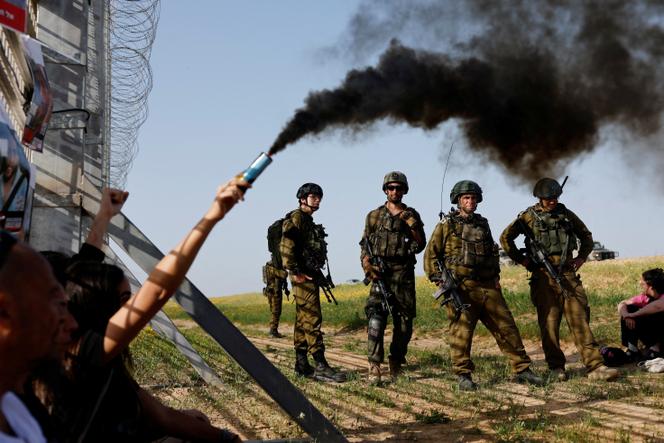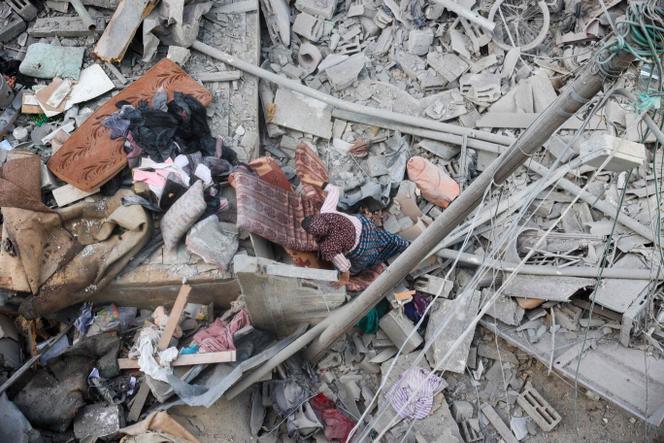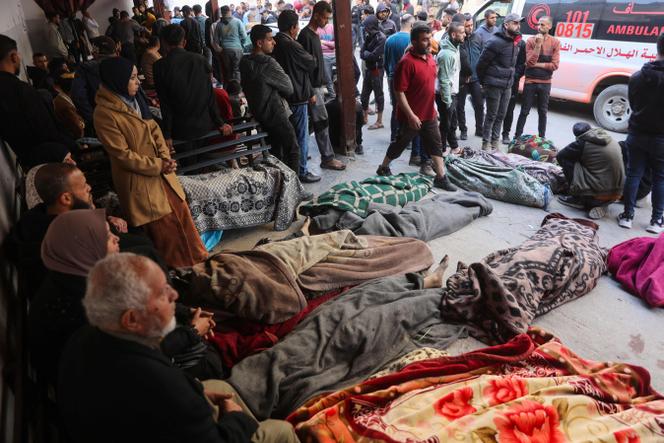


Israel launched a wave of airstrikes across the Gaza Strip early on Tuesday, March 18, saying it was striking dozens of Hamas targets in its heaviest assault in the territory since a ceasefire took effect in January. Palestinian officials reported at least 400 deaths, most of them Palestinian women and children, according to the health ministry in Hamas-run Gaza.
Prime Minister Benjamin Netanyahu ordered the strikes after Hamas refused Israeli demands to change the ceasefire agreement. In a statement aired on national television, he said the attack was "only the beginning" and that Israel would press ahead until it achieves all of its war aims – destroying Hamas and freeing all hostages held by the militant group. All further ceasefire negotiations will take place "under fire," he said.
The Israeli military ordered people to evacuate eastern Gaza and head toward the center of the territory, indicating that Israel could soon launch renewed ground operations. The new campaign comes as aid groups warn supplies are running out two weeks after Israel cut off all food, medicine, fuel and other goods to Gaza's 2 million Palestinians.
Hamas named the head of its government in the Gaza Strip, Essam al-Dalis, among a list of officials it said were killed in the strikes. "These leaders, along with their families, were martyred after being directly targeted by the Zionist occupation forces' aircraft," said the Hamas statement, which also named interior ministry head Mahmud Abu Watfa and Bahjat Abu Sultan, director-general of the internal security service, among those killed.
Netanyahu said he ordered the strikes because of a lack of progress in talks to extend the ceasefire. Officials said the operation was open-ended and was expected to expand. The White House said it had been consulted and voiced support for Israel's actions. "Israel will, from now on, act against Hamas with increasing military strength," Netanyahu’s office said.
The Israeli army urged Gazans to evacuate areas near the border. In a post on X, Israeli military spokesman Avichay Adraee issued a warning to residents "specifically in the neighborhoods of Beit Hanoun, Khirbet Khuza'a, Abasan al-Kabira and Al-Jadida." "These designated areas are considered dangerous combat zones... For your own safety, you must evacuate immediately to the known shelters in western Gaza City and those in Khan Yunis," the post said.
The surprise attack shattered a period of relative calm during the Muslim holy month of Ramadan and raised the prospect of a full return to fighting in a 17-month war that has killed over 48,000 Palestinians and caused widespread destruction across Gaza. A senior Hamas official said Netanyahu’s decision to return to war amounts to a "death sentence" for the remaining hostages. There were no reports of any attacks by Hamas several hours after the bombardment.
But Yemen's Houthi rebels fired rockets toward Israel for the first time since the ceasefire began. The volley set off sirens in Israel's southern Negev desert but was intercepted before it reached the country's territory, the military said.
The strikes came as Netanyahu faces mounting domestic pressure, with mass protests planned over his handling of the hostage crisis and his decision to fire the head of Israel’s internal security agency. His latest testimony in a long-running corruption trial was canceled after the strikes. The strikes appeared to give Netanyahu a political boost. A far-right party led by Itamar Ben-Gvir that had bolted the government over the ceasefire announced Tuesday it was rejoining.
The families of Israeli captives in Gaza on Tuesday called for a meeting with Netanyahu and urged him to "stop the killing of hostages now." "The families of the hostages demand a meeting this morning with the prime minister, the defense minister and the head of the negotiation team, in which they will be assured how the hostages will be protected from the military pressure and how they intend to bring them back," the Hostages and Missing Families Forum said in a statement, adding they would demand: "Stop the killing and disappearance of the hostages now!"
Many Palestinians said they had expected a return to war when talks over the second phase of the ceasefire did not begin as scheduled in early February. Israel instead embraced an alternative proposal and cut off all shipments of food, fuel and other aid to the territory's two million Palestinians to try to pressure Hamas to accept it.

The White House sought to blame Hamas for the renewed fighting. National Security Council spokesman Brian Hughes said the militant group "could have released hostages to extend the ceasefire but instead chose refusal and war." US envoy Steve Witkoff, who has been leading mediation efforts along with Egypt and Qatar, had earlier warned that Hamas must release living hostages immediately "or pay a severe price."
Israel's defense minister, Israel Katz, said the "gates of hell will open in Gaza" if the hostages aren't released. "We will not stop fighting until all of our hostages are home and we have achieved all of the war goals," he said. The territory's civil defense agency said its crews were having a difficult time carrying out rescue efforts because various areas were being targeted simultaneously.

The strikes came two months after a ceasefire was reached to pause the war. Over the course of six weeks, Hamas released 25 Israeli hostages and the bodies of eight more in exchange for nearly 2,000 Palestinian prisoners in a first phase of the ceasefire. But since that ceasefire ended two weeks ago, the sides have not been able to agree on a way forward with a second phase aimed at releasing the 59 remaining hostages, 35 of whom are believed to be dead, and ending the war altogether.
Since the ceasefire in Gaza began in mid-January, Israeli forces have killed dozens of Palestinians who the military says approached its troops or entered unauthorized areas.
Israel wants Hamas to release half of the remaining hostages in return for a promise to negotiate a lasting truce. Hamas instead wants to follow the ceasefire deal reached by the two sides, which calls for negotiations to begin on the ceasefire's more difficult second phase, in which the remaining hostages would be released and Israeli forces would withdraw from Gaza.
